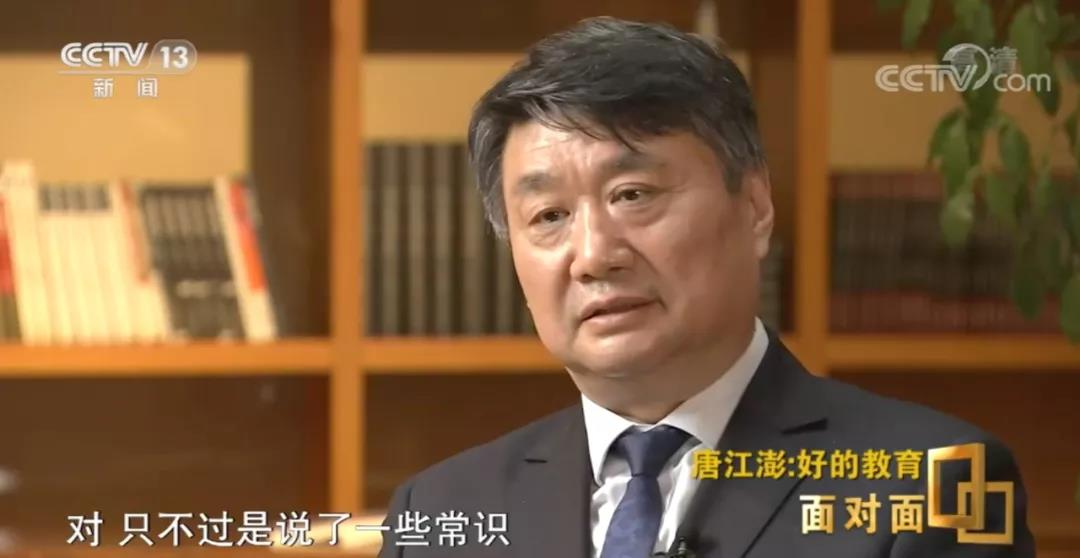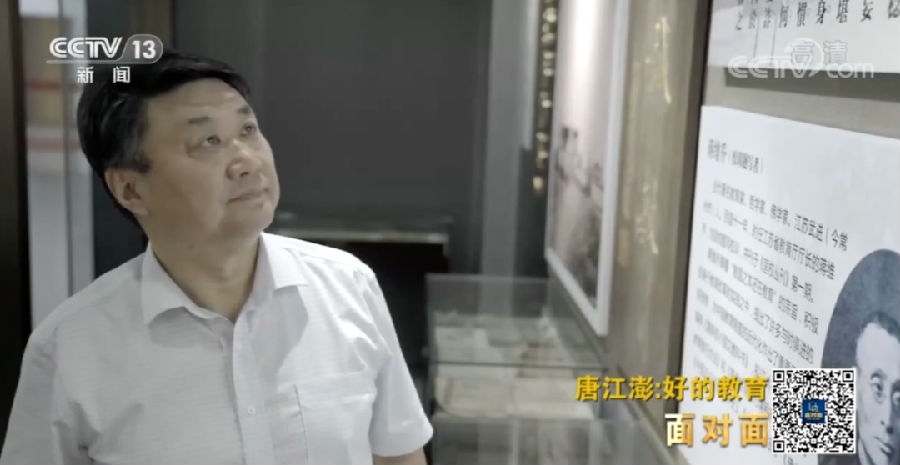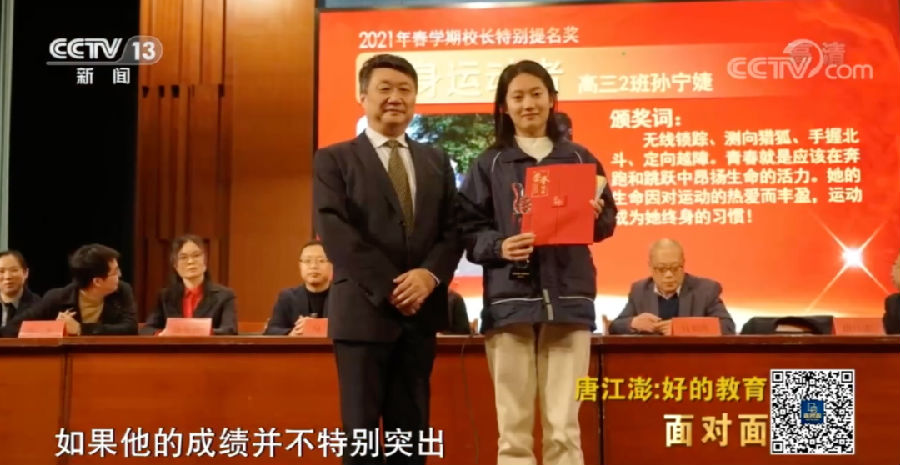 Profile: Tang Jiangpeng is a Chinese Language graduate of Shaanxi Open University (Shaanxi OU), and is now principal of Xishan Senior High School in Jiangsu Province; his other titles include Special-grade Chinese-language Teacher and Senior Middle-school Teacher.
Profile: Tang Jiangpeng is a Chinese Language graduate of Shaanxi Open University (Shaanxi OU), and is now principal of Xishan Senior High School in Jiangsu Province; his other titles include Special-grade Chinese-language Teacher and Senior Middle-school Teacher.
He is Vice Chair of the People’s Political Consultative Conference of Huishan District, Wuxi City; Vice Chair of the Basic-education Teaching Steering Committee of the Ministry of Education (MOE); and a member of the National Expert Working Committee for Curricula and Textbooks in Basic Education. He is also Vice Chair of the Senior High-school Education Professional Commission of the Chinese Society of Education, and a mentor of the "Famous Principals Class" of the MOE Pilot Project of Outstanding Principals. Finally, he has been named a "Most Influential Principal of the Yangtze River Delta of China" and "National Outstanding Principal in Education Reform and Innovation".
"It is far more important for kindergarten children to learn to be organised than to read, and for them to read than to complete reading-comprehension exercises."

Excerpts from a speech of Tang Jiangpeng, deputy to the Chinese People’s Political Consultative Conference (CPPCC) and principal of Xishan Senior High School in Jiangsu Province, became well known in the past Two Sessions of the National People's Congress (NPC) and CPPCC, triggered a passionate national debate, and made Tang a celebrity overnight.
"What I said was just common sense. Why did it create such a sensation?"
Tang Jiangpeng wonders how he suddenly became so popular.
According to him, testing is essential to education, and the college-entrance examination to fairness within the system. It would be irresponsible for a school to ignore academic performance.
However, the ultimate goal of education is to enhance well-being. A good school enhances academic performance and develops students in an all-round way at the same time. If it cannot achieve both, it is doing something wrong.
Despite Tang Jiangpeng’s excellent performance on the college-entrance examination, his physical disabilities kept him out of college.
Tang Jiangpeng's personal experience underlies his profound understanding of the nature of education.
He was born in a backward mountainous area of Shaanxi Province in the 1960s. In 1979, at 16, he took the college-entrance examination at Lingkou Middle School, Luonan County, Shaanxi, and scored among the top students in the province. His ambition was to study Law at Peking University, but he was restricted to applying for Library Sciences due the polio that had left his legs disabled. In the end, many weaker students were accepted to college, while he was shut out.
"If my grades had been low, I could have kept working hard. Yet they were excellent, and it was only my physical disability that kept me from attending university. It was very stressful for me." Playing the erhu and flute, and getting visits from classmates who had also failed to gain college entrance, helped him out of his depression.
Beginning to teach
After Tang Jiangpeng began instructing friends preparing to retake the college-entrance examination, many of whom were able to enrol in good universities the following year, he attracted the attention of a director of the local education bureau, who arranged for the then 17-year-old to tutor in Luonan Middle School, Shaanxi, at a monthly salary of 28 yuan.
In this way, by chance, Tang Jiangpeng came to teach Chinese in a private school. He says that actually he did not know how to teach then, but only how to share his learning experiences with the students, who were expected, as customary, to get high marks on the college-entrance examination.
After three years of study, Tang Jiangpeng obtained a junior-college diploma in Chinese at a Radio and TV University (RTVU). Later, he spent two more years at the Shaanxi Institute of Education, and obtained a bachelor degree in the same major.
"Education Targets Students the Principal Focuses on"
In 1993, Tang Jiangpeng decided to leave for the more-developed south of China, and became a Chinese-language teacher in the prestigious Xishan Senior High School in Jiangsu Province, where concepts of education and teaching methods were unfamiliar to him. When the school asked him to do research into its history, he came upon a photo of a boy that deeply moved him.

On the photo were the words, "A student with perfect attendance for the whole academic year". The photo had been taken over 80 years ago, when picture-taking was still a grand event, and it had a great impact on Tang Jiangpeng. To him, it showed a simple and kind-hearted concern of the school administration for the all-round development of its students.

In 2006, when Tang Jiangpeng was hired as principal of that same school, with its history of 100 years, he set up awards inspired by the spirit of that photograph.
Tang Jiangpeng awards prizes to students who run every day, regardless of their academic achievements, as well as to students who call their parents every day, commending their filial piety, and saying that a considerate child reveals a successful upbringing.

Education reform is less important than educators using their common sense.
Like high-school principals across the country, Tang Jiangpeng is challenged by the pressure the college-entrance examination exerts. However, he still insists on the all-round development of his students, ensuring they take PE every day and art once a week throughout their three years of schooling.
In Tang Jiangpeng's view, common sense, not reform, is the key to successful education.
"Teachers these days have it much harder than they used to. Rapid economic development leads to deep anxiety about social status, and this translates into anxiety about education and children's futures. This will not change quickly. But what teachers can do now is care for the development of their students in an all-round way, cultivate their kindness, and help make the world a better place. "
Reprinted from people.cn by OUC News Network